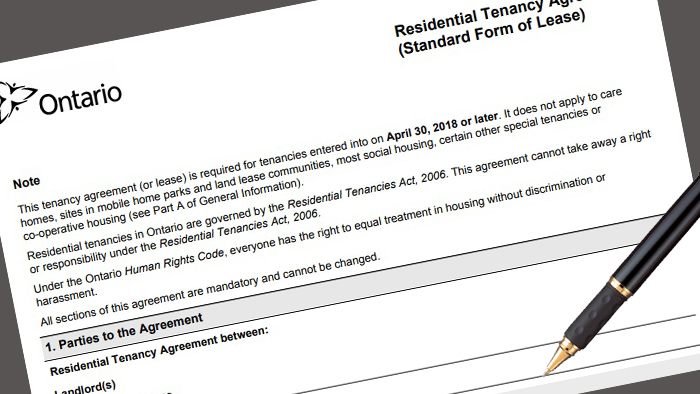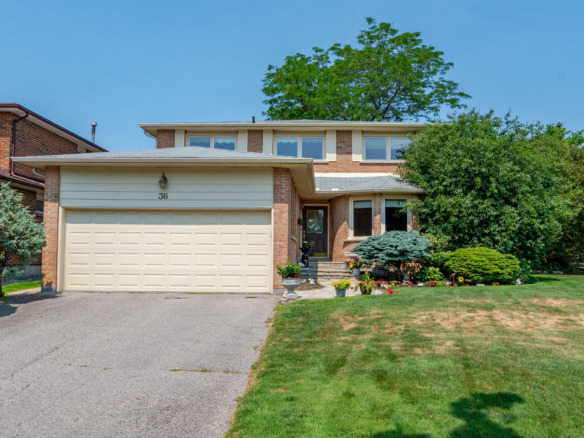What Do You Need for a Rental Application in Toronto
If you are trying to figure out what do you need for a rental application in Toronto, and how much income you need to rent a great place, you are not alone. The rental market runs fast, landlords ask for a lot, and the rules are not always obvious. The good news is that you can prepare a clean, complete rental package that improves your odds, even in a competitive week. Below I break down exactly what goes into a strong rental application in Toronto, what landlords can and cannot ask for, and how to make your application stand out without oversharing your private info.
Quick Answer: What Do You Need for a Rental Application in Toronto?
Most successful rental applications include the following:
- Government photo ID
- Recent credit report with score from Equifax or TransUnion
- Signed employment letter on company letterhead with salary, position, and start date
- Two recent pay stubs showing your proof of income
- Previous and current landlord contact information
- Two personal references with contact info
- First and last month’s rent on acceptance, not at the showing
Ontario’s rules also set boundaries. Landlords can ask for rental history, references, and credit checks, and they may look at income, but they must consider these items together. A lack of Canadian credit or rental history by itself should not count against you.
The Ontario Standard Form of Lease and Where Your Info Goes
When you are approved, most private rentals must use Ontario’s Standard Form of Lease. That form spells out who pays what, the deposit rules, and house basics. It is mandatory for new agreements and keeps both sides on the same page. You can preview it and its plain-language guide online so you know what you are signing before offer day.
Pro tip: Review the standard lease before you apply. It will help you catch red flags, like clauses that try to charge illegal fees or ban things that are protected by provincial rules.
What Landlords Can Ask For, and What You Do Not Have to Provide
OK to request: rental history, references, and a credit check, plus income details that help confirm you can afford the rent. The Human Rights Code expects landlords to look at these items together, not in isolation. If you are new to Canada or do not have Canadian credit, your application should not be rejected for that reason alone, especially if you can provide alternatives like a job offer, bank statements, or a guarantor.
About your SIN: a landlord may ask, but you do not have to provide it. A credit check can be run with your full name and date of birth. If you choose to share your SIN, ask how it will be protected and stored.
Application fees: in Ontario, charging a non-refundable “application fee” to apply for a rental is not allowed. You should not be paying money just to submit an application. If someone asks, that is a red flag.
Deposits: a landlord can collect a rent deposit on or before the start of the tenancy, capped at one month if rent is paid monthly. That deposit is for the last month’s rent only, not for damages. Some landlords also ask for a key or fob deposit, which must reflect the actual replacement cost and us refundable when the fob or key is returned at the end of your tenancy.
Pets: “no pets” clauses in leases are generally void in Ontario once a tenancy begins. Condo corporations may have their own rules that limit pets, so ask early if you are looking at a condo.
What a Strong Toronto Rental Package Looks Like
What do you need for a rental application in Toronto? Think of your rental application as a mini mortgage file. It should be complete, readable, and easy to verify. Here is how to assemble it.
1) Identification
Valid government photo ID. Keep your ID visible, but do not include extra numbers you do not need to share.
2) Employment proof and income
- Employment letter on company letterhead, signed and dated, that confirms your position, whether you are full-time or part-time, your annual pay, and your start date.
- Two or three recent pay stubs.
- If you are self-employed, replace the above with a recent Notice of Assessment from Revenue Canada, and/or a letter from your accountant, and/or a few months of business bank statements.
Landlords can ask for income information, but according to the Ontario Human Rights Commission they should review it alongside rental history and credit references, not as a stand-alone filter. That matters for students, newcomers, and career changers.
3) Credit report
Pull your own full credit report and score from Equifax or TransUnion so you can see what the landlord will see. If you have limited or new credit, explain it up front in a short cover note and offer alternatives like a guarantor. You are not required to provide your SIN to run a credit check.
4) References and rental history
- A previous landlord reference with dates, rent amount, and a sentence on payment history and unit care.
- A professional reference, ideally a manager.
- If you are a first-timer, offer a character reference and add bank statements to show savings.
Per the Human Rights Commission, a lack of credit or landlord history should not be treated negatively when other information is available. This is especially relevant to newcomers and recent grads.
5) Deposit logistics
Be ready to transfer last month’s rent when your application is accepted and the lease is signed. The deposit covers the final month of your tenancy, not damages.
How Much Income Do You Need to Comfortably Qualify for a Typical Toronto Rental?
Every landlord is different, but many screen using debt service rules that mirror mortgage lending. A common view is that total shelter costs should be near one third of gross monthly income. That means:
- $2,400 condo rent often works best for households earning around $7,200 per month before tax
- $3,000 to $3,500 for a two bedroom may fit households earning around $9,500 to $11,000 per month before tax
These are not laws. They are screening comfort zones that landlords use to gauge payment capacity. If you are outside those ranges, a stronger down payment history, savings balance, guarantor, or longer employment tenure can sometimes offset the ratios, especially when your application is complete and easy to verify. The Human Rights Commission reminds landlords to consider income along with credit and rental history, not on its own. Consider this when asking what do you need for a rental application in Toronto.
Newcomers, Students, First Jobbers: How to Strengthen Your File
- Offer a guarantor or co-signer with strong Canadian income and credit.
- Prepay a few months of rent only if you volunteer to do so. A landlord cannot require advance rent beyond the last month’s deposit, but you may choose to offer it as a sweetener in competitive cases.
- Provide alternative proof of funds, like a recent bank statement that shows savings for several months of rent.
- Explain the story in a short cover note, for example “relocating for work with signed offer, starting September 1.”
Things You Should Not Be Pressured to Accept
- Application or viewing fees. Not allowed in Ontario.
- Large “damage deposits,” extra months of rent, or cleaning fees. The Act allows a rent deposit for the last month only, plus a reasonable refundable key or fob deposit.
- Blanket “no pets” in a non-condo. The clause is void once the lease is signed, although condos can have pet rules (size, breed, type, etc).
- Requirement to provide your SIN. Optional, and a credit check can be done with other identifiers.
If something feels off, check the Standard Lease guide and the Landlord and Tenant Board resources, or reach out to a housing legal clinic.
Step by Step: How to Apply Like a Pro
- Pull your own credit report and correct errors before you start touring.
- Get your employment letter and pay stubs into a single clean PDF.
- Line up references and confirm they will pick up the phone.
- Tour with a plan, arrive with your package ready, and submit quickly after the showing.
- Be flexible on start date and small items like minor paint touch-ups. A cooperative tone can beat a slightly higher offer.
- Read the lease and ask to remove illegal or unfair clauses. Use the Standard Lease as your checklist.
FAQ: What Do You Need for a Rental Application in Toronto
Can a landlord ask for post-dated cheques? They can ask, but you do not have to provide them. Many tenants use e-transfer. The key is that rent is paid on time and the last month’s deposit remains applied to the final month only.
What if I am self-employed? Provide a recent Notice of Assessment, an accountant letter, and a few months of bank statements to confirm cash flow, then add references.
What about roommates? Expect each roommate to submit full documents. Some landlords require a joint lease, which makes all tenants responsible for the full rent.
The Bottom Line
Still wondering what do you need for a rental application in Toronto? It’s got to be complete, accurate, and easy to verify. Bring ID, credit, income proof, and references. Know your rights on fees, deposits, pets, and privacy. If you are light on Canadian history, backfill with savings, a guarantor, or a clean employment story. The rules exist to balance the process, and a well prepared file often wins without paying extra.
Ready to Rent With Confidence?
If you want help packaging a winning rental application, shortlisting the right buildings, and negotiating fair terms, I am here for it. Contact Sean Mayers Real Estate to get a curated list of rentals that fit your budget, your commute, and your lifestyle, and to submit applications that landlords actually say yes to.
Let’s get you the keys.








